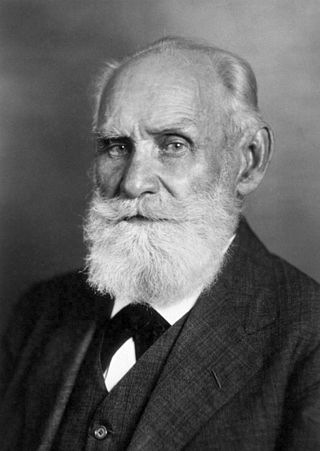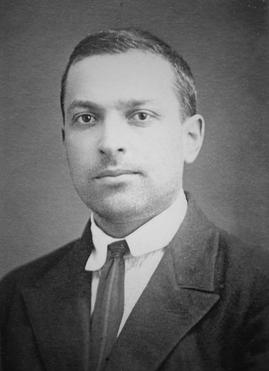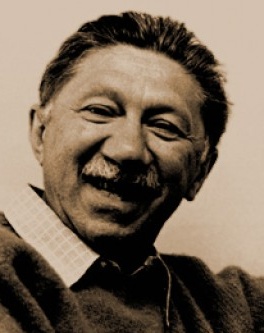
Psychology is the study of mind and behavior in humans and non-humans. Psychology includes the study of conscious and unconscious phenomena, including feelings and thoughts. It is an academic discipline of immense scope, crossing the boundaries between the natural and social sciences. Psychologists seek an understanding of the emergent properties of brains, linking the discipline to neuroscience. As social scientists, psychologists aim to understand the behavior of individuals and groups.

Carl Gustav Jung was a Swiss psychiatrist and psychoanalyst who founded analytical psychology. Jung's work has been influential in the fields of psychiatry, anthropology, archaeology, literature, philosophy, psychology, and religious studies. He worked as a research scientist at the Burghölzli psychiatric hospital, in Zurich, under Eugen Bleuler. Jung established himself as an influential mind of his time, developing a friendship with Sigmund Freud, founder of psychoanalysis, conducting a lengthy correspondence, paramount to their joint vision of human psychology. He is regarded as one of the most influential psychologists in history.

The American Psychological Association (APA) is the largest scientific and professional organization of psychologists in the United States, with over 146,000 members, including scientists, educators, clinicians, consultants, and students. It has 54 divisions—interest groups for different subspecialties of psychology or topical areas. The APA has an annual budget of around $125 million.

Ivan Petrovich Pavlov was a Russian and Soviet experimental neurologist and physiologist known for his discovery of classical conditioning through his experiments with dogs.
Socionics, in psychology and sociology, is a pseudoscientific theory of information processing and personality types. It incorporates Carl Jung's work on Psychological Types with Antoni Kępiński's theory of information metabolism. Socionics is modification of Jung's personality type theory that uses eight psychic functions instead of four. These cognitive functions are supposed to process information at varying levels of competency and interact with the corresponding function in other individuals, giving rise to predictable reactions and impressions—a theory of intertype relations. In contrast to the generally accepted views in personality psychology on age-related variability of the human psyche, socionics distinguishes 16 рsychophysiological types or types of informational metabolism unchanged throughout life. The issue of the existence of personality types is considered by modern personality psychology to be extremely controversial. However, the immutability of socionic рsychophysiological types is determined by the stability of their neural structures in the brain. At the same time, psychological personality traits can evolve and change throughout life. The special commission of the Russian Academy of Sciences has placed socionics among such well-known pseudosciences as astrology and homeopathy.

Lev Semyonovich Vygotsky was a Soviet psychologist, best known for his work on psychological development in children and creating the framework known as cultural-historical activity theory.

Abraham Harold Maslow was an American psychologist who created Maslow's hierarchy of needs, a theory of psychological health predicated on fulfilling innate human needs in priority, culminating in self-actualization. Maslow was a psychology professor at Brandeis University, Brooklyn College, New School for Social Research, and Columbia University. He stressed the importance of focusing on the positive qualities in people, as opposed to treating them as a "bag of symptoms". A Review of General Psychology survey, published in 2002, ranked Maslow as the tenth most cited psychologist of the 20th century.
Aleksei Nikolayevich Leontiev, was a Soviet developmental psychologist and philosopher and a founder of activity theory.

Vladimir Mikhailovich Bekhterev was a Russian neurologist and the father of objective psychology. He is best known for noting the role of the hippocampus in memory, his study of reflexes, and Bekhterev’s disease. Moreover, he is known for his competition with Ivan Pavlov regarding the study of conditioned reflexes.
The Kharkov school of psychology is a tradition of developmental psychological research conducted in the paradigm of Lev Vygotsky's "sociocultural theory of mind" and Leontiev's psychological activity theory.

Bluma Zeigarnik was a Soviet psychologist of Lithuanian origin, a member of the Berlin School of experimental psychology and the so-called Vygotsky Circle. She contributed to the establishment of experimental psychopathology as a separate discipline in the Soviet Union in the post-World War II period.

The Journal of Personality and Social Psychology is a monthly peer-reviewed scientific journal published by the American Psychological Association that was established in 1965. It covers the fields of social and personality psychology. The editors-in-chief are Shinobu Kitayama, Colin Wayne Leach, and Richard E. Lucas.

László Garai was a scholar of psychology: studies theoretical psychology, social psychology and economic psychology.

Samara State University was a classical multi-faculty university and a leading educational institution of higher education in Samara Oblast, Russia. It consists of faculties of Mathematics and Mechanics, Physics, Biology, Chemistry, Philology, History, Sociology, Economy and Management, Psychology, and Law. It is considered to be the most prestigious graduate school in Samara and the area, especially with its highly competitive and demanding programmes in the English Language, Law, Sociology, Political Science, International Relations, and Psychology. SSU is also noted for its postgraduate research in the Sciences and the Humanities.

In social psychology, a stereotype is a generalized belief about a particular category of people. It is an expectation that people might have about every person of a particular group. The type of expectation can vary; it can be, for example, an expectation about the group's personality, preferences, appearance or ability. Stereotypes are sometimes overgeneralized, inaccurate, and resistant to new information, but can sometimes be accurate.

The Bekhterev Review of Psychiatry and Medical Psychology is a Russian peer-reviewed medical journal containing original research, systematic reviews, etc. relating to the areas of psychiatry, medical psychology and psychotherapy.
The Russian Psychological Society is the official professional association of Russian psychologists. RPS is a member of the European Federation of Psychologists' Associations and the International Union of Psychological Science.
Antonio E. Puente is an American neuropsychologist and academic. He was the president of the American Psychological Association in 2017. He has a private practice, is the founding director of a bilingual mental health clinic, and is on the psychology faculty at the University of North Carolina Wilmington (UNCW). He founded the journal Neuropsychology Review.
In January 2008, Russian, Belarusian, and Ukrainian academics issued the "Belgorod Declaration" in support of open access to scientific and cultural knowledge. Russian supporters of the international "Open Access 2020" campaign, launched in 2016, include Belgorod State University, National Electronic Information Consortium (NEICON), and Webpublishers Association.

Most measures of religiosity, such as church attendance and affiliation, are positively correlated with the authoritarian personality cluster, which includes submission to authority, conventionality, and intolerance of out-groups. The correlation is especially strong between religious fundamentalism and authoritarianism, both of which are characterized by low openness to experience, high rigidity, and low cognitive complexity. In particular, authoritarianism "is positively associated with a religion that is conventional, unquestioned, and unreflective".













